Archives
now browsing by author
Bonjour! Je m’appelle Jia
After taking a year of French in middle school, my love for this language has grown. I’ve always wanted to live in Paris and I would sometimes imagine myself strolling down the street just listening to everyone around me speak French. The language itself is fascinating and beautiful. Thankfully, I still remember the basics of French and can carry out a simple conversation. I think that French is a very commonly used language and is spoken in many countries around the world. Nonetheless, it is just a very fun language to learn and speak!

Many English words are of French origin in case you did not know that. Also, in English, the “p” and “k” sounds are often aspirated, while in French, the “p” and “k” sounds are generally unaspirated. To me, pronouncing the words in French is not as difficult as telling the time in French. When it comes to telling time, I definitely prefer the English method.
If you plan on travelling to any of these countries in the future, make sure to pick up some French before you go, or use an online translator. Also, learn the commonly used words and essentials of French and you will survive throughout your trip.
That’s it for now, Au revoir!

Accent Challenge by Two Asians
By Jia Wen Xu & Xiao Huang
Here is a link to our Tumblr Accent Challenge
LFL: Fun, Eccentric Non-conformist
 Something About Myself: Extremely lazy but work well under pressure; enjoy baking at own leisure. Bed must be neat and tidy… and surrounded by stuffed animals.
Something About Myself: Extremely lazy but work well under pressure; enjoy baking at own leisure. Bed must be neat and tidy… and surrounded by stuffed animals.
My Language: I am originally from a small village in China, then traveled to a small city in Los Angeles called San Gabriel, which is still filled with my own kind- Asians. I consider myself to be a dorky Asian rebel that still goes to the temple with my mom every year. I tend to talk very fast with my close friends, which are also Asians. Also, I often slur my words simply because I am too lazy to enunciate every word.
Favorite Movies: 1) White Chicks
2) A Walk to Remember
3) Death at a Funeral
Favorite Word: Dumpling. A simple word that sounds cute and delicious. The outside may seem plain and boring, but as you bite into it, you will taste different kinds of yummy-ness.
My Ideal Linguistic Adventure: We would be walking down a crowded street in Paris speaking French and enjoying dessert at a cute coffee shop. Then we would be in an isolated island in Japan enjoying nature and listening to the natives speak Japanese.
How is Linguistics like a Pine Cone? A pine cone is defined as: the conical or rounded woody fruit of a pine tree, with scales that open to release the seeds. Linguistics is similar in the sense that there are many branches and categories. Pine cones contain the reproductive structure of a pine tree, while Linguistic Reproduction plays a major role in the evolution of language groups.
COLLABORATIVE HW #4
SUMMARY:
Although there were some differences in each group member’s response in the first part of the homework, we all agree that language, culture, space, and time all relate to one another. The region in which a person lives in greatly influences the way they speak. Some words and phrases are more prominent and widely used in one area than another. In our group, we are either from San Diego or Los Angeles, so our language does not vary much and we notice that by comparing our responses for number 17.
LANGUAGE VARIATION
Andrew’s Responses:
14) P, S, P, Sm, M, P
16) N=native, S= some, NN= non-native
NN, N, S, S, NN, S, S,S, S, N, NN, S, S, S, NN
17) bucket, bag, blinds, soda, fireflies, in line, straighten it up, you guys, a quarter to
Jia’s Response:
14)Phonetic; Syntactic; Phonetic; Semantic; Morphology; Phonology
16) a. non-native; b. natural; c. non-native; d. some; e. some; f. non-native; g. some; h. some; i. some; j. natural; k. non-native; l. some; m. some; n. some; o. non-native
17) a. bucket; b. bag; c. curtains & blinds; d. soda & soft drinks; e. fireflies; f. in line; g. clean it up; h. you guys & y’all; i. none, i say “five fifteen or four fourty-five”
Xiao’s Response:
14) Phonological,Syntactic,Phonetic,Semantic,Morphological,Phonological
16) a.non-native, b.natural, c.non-native, d.some, e.some, f.some, g.some, h.some, i.some, j.natural, k.non-native, l.some, m.some, n.some, o.non-native
17) a.bucket, b.bag, c.blinds and curtains, d.soda, e.fireflies, f.in line, g.clean it up, h.you guys, i.none I say “four forty-five”
Melaney’s Response:
14) Phonological,Syntactic,Phonetic,Semantic,Morphological,Phonological
16) non-native, some, natural,non-native, some, some, some, some,natural,native, some, some, some, some, native
17) a.bucket, bag, curtains, soda, fireflies, in line, clean it up,you guys, none I say “fifteen or four forty-five”
LANGUAGE CULTURE
page 479 #1,2,3
1) adjective placement, subject-predicate sentence structure, SVO sentence structure.
2) You can make performance errors and still be competent in the language
3) An adjacency pair is a when a statement is meant to be responded to
A:Nice weather
B: Sure is
A:Have a good day
B:Thanks,you too
A:See you later
B:see ya
A:Where’s SDSU?
B:Right over there
A:Good work!
B:Thank you!
page 480 #15
15)Power relationships can be established in conversation by the volume of a person’s voice or the pace s/he speaks at. From experience, people who spoke demandingly and gave out instructions tend to assume the more powerful role. Those who take on the subservient role tend to use a lot more fillers in their speech because they are skeptical about what they’re saying. People exerting power are more assertive and confident in what they are saying while those who are acquiescing tend to be more passive and indirect in their speech. These cues are usually socially determined because different cultures exhibits power in conversation differently.
page 482 #28, 29
28)a. etic- A girl twitched her face at another girl and moved her hands back and forth emic-The other day when I saw my friend, I smiled and waved at her.
- etic- A girl is eating bow shaped things from a bowl and is making loud noises with her mouth opened to another girl who keeps moving her mouth.
emic-For lunch today I ate pasta and laughed at something my friend told me.
c.etic- Teacher walked in quickly mouthed some words, turned on the screen protector and directed the students to focus on the whiteboard.
emic-My teacher rushed in late, said “good morning” to us and went over some changes we needed to make on our calendars.
29)Participant observation involves observing within a community to understand how and why people do certain things on a daily basis. An example would be trying to assimilatee with people around you when you move to a new country. Passive observation is studying the everyday life of a community without getting involved in it to cause the least disturbance ot the community. An example would be a scientist trying to study behavior within a certain community, he can only observe and not get involved.
LANGUAGE CHANGE
page 557 #10, 14
10)Even though there are no written records of proto-Germanic, we know it exists because we can trace back to it by finding similarities between english, german, dutch, danish, swedish and etc. By finding various similarities between these languages we know there must be a common language we can trace back to where english, yiddish and etc. originated from.
14) We spell the words “knife” and “knight” with a <k> because these words come from Germanic roots but people got lazy to pronounce the “k” so it became a silent k and eliminating the “k” in front of some words might cause confusion with other words such as “know” and “knight.”
page 561 #22
22) Examples of fluctuation and variation in english are “drink/drank” and “swim/swam.” The analogical process comes into to play here as it changes the vowels of both words instead of adding -ed to make it past tense. This is probably because these words have not been modified unlike “clomb” to “climbed.”
page 562 #29
29) i. When speaking about the internet and computers, there are more new words than there are old words put to new use. This is because computers and internets are a fairly new technology so people create new words to describe actions they can do on the computer such as “emailing,” “tweeting,” “vlogging,” and the most popular phrase nowadays “google it.” These words or phrases and expressions have never existed before the computer age.
ii. For those old words that have been put to new use extension has occurred because those words have been used to define a new phenomena that had never existed before. These old words have been recycled to have new meanings and connotations when talking about technology.
page 563 #33
33) a. cynical= cynicus & kunosarges// doglike, churlish: degradation
- hacker= biohacker//a chopper, cutter: reduction
- anecdote= anekdota//things unpublished: extension
- grotesque= grottesca & crotesque//of a cave: elevation
- parakeet= paroquet & parroochetto//little priest: reduction
- leer= hleor//untrusting, suspicious,alert:degradation
- captivated= captivus & captivare//to enthrall with charm: elevation
- paisley//town in southwest, Scotland: extension
LANGUAGE CONTACT
page 513 #12
12)Foreign influences and extensive borrowing can threaten a language’s purity. The preservation of traditional languages are important.
page 516 #22, 23
22)”Once upon a time there was Anansi and Tiger…” When read out loud, the words sound pretty much similar, however, certain words are harder to understand and different than English. I also understand the part in quotes which reads, “Okay then lets go.”
23) Half of the text is understandable because it is either in plain English or when we pronounce it, it sounds like what we would normally say. However, the grammar is confusing and most of the words we cannot comprehend. In Hawaiian Creole English, there is “Me I,” but in regular English, we either say “me” or “I,” we do not say both or put them next to each other in a sentence.
page 517 #29
29) It is definitely a worthwhile effort to prevent an endangered language from dying out. Language plays a huge role in determining people’s identity. Language is a very precious to a culture because it reflects its history and past. It also brings unity and community to those who speak the same language. The language people speak growing up really defines and shapes who they are later on in life.
Jia Xu, Xiao Huang, Andrew Madruga, Melaney Beene
San Diego Museum of Man
As we first step into the Museum of Man, we can see a big wall full of words in different languages that translate to beer in English. This is where I found most of the languages that we were supposed to look for. I had trouble finding the “Yahi Language,” but other than that everything else was pretty easy to spot. Most of the words that were in different languages were names and places.
I enjoyed this experience because if it wasn’t for this class, I would not have a chance to go to this museum. I found the torture exhibit to be the most interesting part of the trip because it is crazy to think about what people had to go through back in the days. I kept imagining what it would be like if I were to live during that time period… hm… I probably would’ve been tortured for saying something stupid. I find it so strange and terrifying that the inventors actually came up with these ideas of torturing people.
Overall, I had a great time with my friends, even if it meant sacrificing my weekend to stay in the dorm instead of going back home. The highlight of my day was seeing the huge boxes of pizza and… of course, receiving a souvenir pencil from Professor Bigham.
Also, I drew my name in Maya Glyphs… which took forever… so glad the English alphabet is easier to write.
“Greetings and Salutations” – J.D
The movie that my friends and I watched was Heathers. It is considered a black comedy therefore, it contains foul language. I personally thought the movie was quite boring and even difficult to understand in certain scenes. This film was released in 1989 so the type of language that the characters used back then does not sound like things we would typically say nowadays. The slangs they used could easily relate to the ones teens use today. However, when the characters insult one another, they use weird sentences like “stop pulling on my dick” even though the person that said it was a girl. Personally, that was weird to me. As for my non-language village friend that also watched the film with me, he found the movie to be funny and confusing at the same time. I agree because the casual conversations between characters seem to be so complex and they use weird words. Instead of saying “what’s up” or “hey,” a character in the film says “greetings and salutations” which is very strange because it sounds very formal.
In the scene where one of the rich, popular girl named “Heather” dies, the killers plan to fake a suicidal note and one of them decides to use the word “myriad” in it. However, they realized that “Heather” would’ve never used that word, simply implying that she is stupid. In the next scene where the school board teachers discuss Heather’s apparent suicide, one of them said “I’m surprised she used the word myriad in her suicidal note.” From this, viewers can reach a conclusion that rich people are often dumb because they don’t feel the need to be educated if they have money and fame.

– Jia Wen Xu
Language Village
GEN100- Xu and Huang: Scavenger Hunters
We started our scavenger hunt at the Love Library because we assumed that’s where most of the languages would be at. Unfortunately we were very wrong, there were barely any signs in there that were not English. We expected to at least find some signs or posters in Spanish in there, but we didn’t. We then moved onto other campus resources such as the Office of Registrar, Student Life and Leadership, Financial Aid & Scholarships Office, Ombudsman, Student Testing Center and etc. However, those places hardly had any signs or posters in any languages other than English. We did find some brochures and forms in Spanish but that didn’t count as public signage. Then we visited the Cross Cultural Center and hit the jackpot. We found most of our signs and posters of different languages in there. For example we found a huge poster in French in there and a “Si Se Puede” poster from the United Farm Workers motto. In order to prove we went to each location we included little hand drawn pictures of ourselves under most of the signs we took pictures of because we are camera shy.
– By Jia Xu & Xiao Huang GEN100
Calling Back Home
The person I called was my uncle because he is often curious about my new dorm life. Our conversation was very casual and consisted of very few English words because we mainly communicate in Chinese. He asked me ” How are you doing?” instead of “What’s up?” which was expected because I think only people of similar age would say something like that since it is quite informal. He also says soda instead of pop and he does not use the word “hella.”
The set of words such as pool and pull , feel and fill sound completely different to me, whereas collar and caller sound the exact same. I feel that although many words in the English language sound similar to one another, as long as we use it in a correct sentence, we will be able to differentiate the meaning of it.






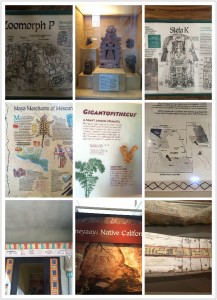
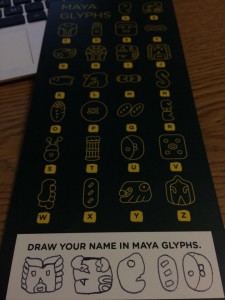


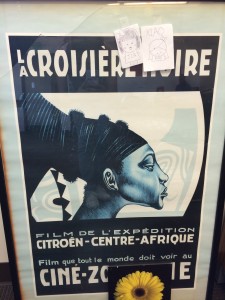
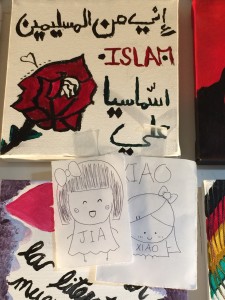





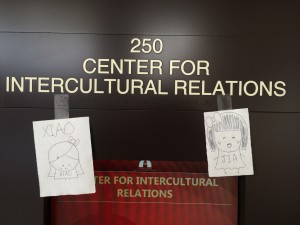

 D5 Creation
D5 Creation